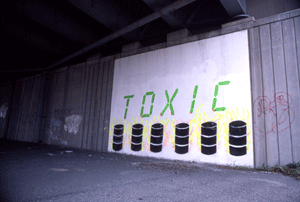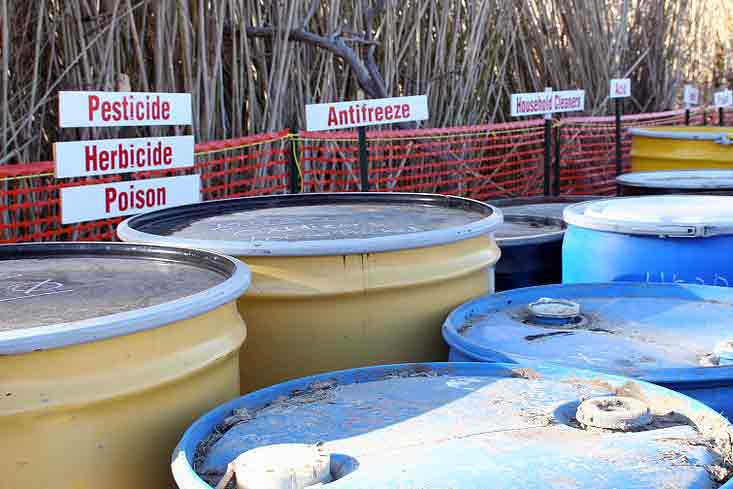
Photo: Wikimedia Commons
Remember Kettleman City? That town midway between San Francisco and Los Angeles, where nearly half the residents live below the poverty line and an unusually high number suffer from asthma, cancer, and birth defects? Last month, I wrote that for 23 years Kettleman’s residents have blamed their local landfill, which contains chemicals known to cause cancer and reproductive complications, for their health problems. Those health problems include miscarriages and 11 infant birth defect cases in three years. Well, Kettleman just got some good news.
Recently, the US Environmental Protection Agency notified Chemical Waste Management that its landfill in Kettleman is violating PCB disposal rules. The EPA actually found traces of polychlorinated biphenyls in the soil near Waste Management’s facility back in 2007 but failed to take action, according to local reports. The fed’s current findings discredit Waste Management’s repeated claims that its facility is safe and in compliance with toxic substance control regulations. Central Valley Business Times reports:
[Bob] Henry [Waste Management’s senior district manager] says recently completed monitoring of air, soil and vegetation at the site “has confirmed that PCBs stored and treated at the Kettleman Hills Facility have no impact on human health or the environment.”
Really? Congress banned PCBs back in the Seventies because they were found to be “probable” human carcinogens. Their improper disposal definitely poses a health and environmental risk. Regardless, the EPA’s news bolsters Kettleman’s informal case against the largest landfill in California. The news puts the Central Valley town in league with Anniston, Alabama or more appropriately Warren County, North Carolina—towns that had at least one landfill in which PCBs were improperly stored and local residents complained of illnesses. Stand by for more developments in this story.
Follow Titania Kumeh on Twitter.















